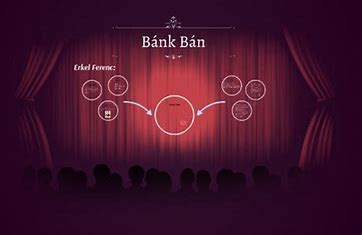
“I just want to sell titty pictures,” says Allie Eve Knox, a professional dominatrix and fetish performer, exhausted. “I never wanted to be an expert in financial discrimination.”
After starting out in sex work in 2014, Knox, like others in the field, has become something of a financial pariah. The first to ban her were the payment apps – PayPal, Venmo, and CashApp – which prohibit the sale of adult content as policy. But then Knox lost her bank account too. It took a week to recover her money.
Nine years on and 30-plus bans later, Knox is jaded: “I don’t want to have to know how to run money to different places. I don’t want to deal with any of this bullshit.”
An ICU nurse by training, Allie Rae, another US-based sex worker, began posting on OnlyFans when her husband was furloughed. Before long, she was earning far more selling adult content online – close to $500,000 per month – than she was in her regular job. But like Knox, she quickly ran into trouble.
When word of her side hustle spread through the ward, Rae lost her job. But she also found that realtors wouldn’t deal with her, lenders refused her a mortgage, and accountants snubbed her. Rae set up a company through which to manage her income, but no major bank would give her a business account. “Left and right, it’s been a struggle,” she says. “I was very naïve – I didn’t understand the magnitude of the discrimination.”
The experience of Knox and Rae is typical of sex workers across the globe, but particularly in the US, where banks and payment processors shy away from the adult industry. The reason is almost never made clear, but sex workers suspect that financial institutions fear reputational damage and liability for the facilitation of money laundering or sex trafficking. Data published in May by the Free Speech Coalition (FSC), a US trade association for the adult industry, suggests two-thirds of sex workers have lost access to either a bank account or financial service, while 40 per cent have had an account closed within the past year.
Faced with this predicament, sex workers have gone in search of an alternative means of both storing wealth and accepting payment. In cryptocurrency, for a time, it appeared they had found one: Not only did crypto allow clients to pay discreetly, without supplying personal information, but it gave sex workers a way to bypass the banking system entirely, by taking payments directly to their crypto wallets.
But as regulatory scrutiny of cryptocurrency ratchets up in response to the fallout of the collapse of crypto exchange FTX, sex workers are bumping up against its limitations. They are finding that, in a few important ways, crypto is no more detached from the banking system than the dollar it was built to someday replace.
In the US, full-service sex work (also known as prostitution) is illegal in every state but Nevada, but pornography and online sex work are legal under the First Amendment. Irrespective of this distinction, banking access has been a problem for the entire sex work community since at least the 1960s, says Mike Stabile, director of public affairs at the FSC, and has only become more acute.
The issue was exacerbated a decade ago by a programme launched by the Obama administration, under which banks were warned that a collection of industries posed an “elevated risk” of fraud, including pornography. Now known as Operation Chokepoint, the initiative was found by investigators not to have constituted a deliberate attempt to disrupt disfavoured businesses, but is nonetheless said to have led banks to sever ties with the adult sector.
In 2018, the Allow States and Victims to Fight Online Sex Trafficking Act (FOSTA) and the Stop Enabling Sex Traffickers Act (SESTA) followed. The bills were supposed to make it easier to hold to account platforms that allegedly facilitate trafficking, like Backpage.com, which was seized by the FBI. But the online classifieds site – and others, since voluntarily closed – were also popular venues for advertising legal sex services, as well as sharing information about new clients for safety purposes. The bills had the triple effect, then, of clipping sex workers’ income, increasing risk and making the banks even more squeamish, members of the industry say.
Because the adult industry has historically been fairly small – and the Christian anti-porn lobby has been dogged – its advocates have made little imprint in Washington, DC. But the arrival of platforms like OnlyFans, which grew substantially during the pandemic, has shone a new light on the banking issue. The industry “went from 2,000 people shooting adult content in San Fernando Valley to millions of people,” says Stabile. “Suddenly, there was a far larger number experiencing [the closure of bank accounts and other financial services].”
When banks close the accounts of sex workers, they rarely give a clear justification. In one letter delivered by Wells Fargo to porn actor Alana Evans, president of the Adult Performance Artists Guild (APAG), the bank wrote that the account, opened in the mid-1990s, would be closed as part of “ongoing reviews” related to its responsibility to “manage risks.” The decision, the letter said, was final. Wells Fargo declined to comment.
The personal and social consequences of a lack of access to banking and payments services for sex workers range from the mundane – an inability to use Venmo to split the bill at a restaurant – to the potentially existential: the failure to meet medical fees or rent, say.
It also means they are beholden from a commercial perspective to platforms like OnlyFans and Fansly, which handle payouts but take a sizeable chunk of earnings. Because of the deterioration of their own relationships with the banks, these platforms are sometimes unreliable too. (In 2021, OnlyFans announced a ban on sexually explicit content, under pressure from banking partners to clean up, before reversing course five days later.)
In the worst possible cases, though, a lack of access to financial services creates dangerous power dynamics, whereby sex workers must rely on a friend or spouse to act as the custodian of their wealth, exposing them to risk of abuse.
“One of the ways traffickers control victims is by controlling their finances,” says Jessica Van Meir, founder of MintStars, an adult-friendly NFT subscription platform, and a PhD candidate at Harvard specialising in women’s informal labour. “The irony is that banks exclude sex workers largely for fear of liability for sex trafficking, but by discriminating against sex workers, they put them at higher risk of sex trafficking.”
Even if the friend or spouse is well-meaning, says Stabile, “you’re handing someone else control of your financial life—and that’s tremendously dangerous.”
- A Wired report








